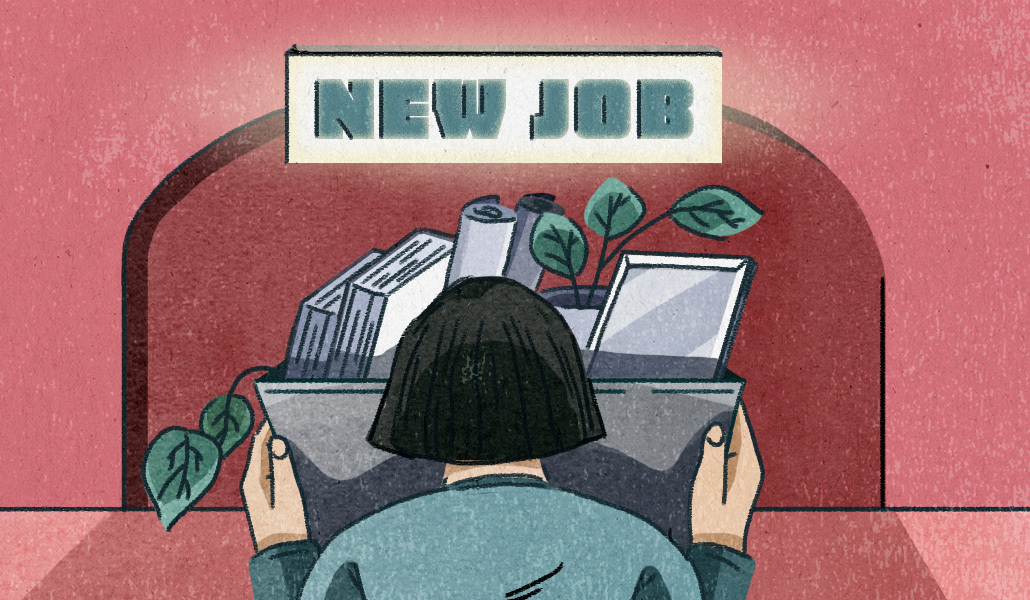Where middle managers need the most help, by the numbers

The unpredictability of the business environment, coupled with intense pressure on productivity and ensuring hybrid team cohesion, leaves middle managers constantly on edge, trying to make sense of shifting priorities and objectives. This article is part of an editorial series that spotlights their frustrations and where they need more support. More from the series →
The story of middle managers is well known – they have too many responsibilities, are burnt out, and feel like they’re not supported.
But to what extent do managers really feel this way?
We dove into data from Capterra’s recent middle management survey, Gartner’s HR leaders’ priorities for 2024 report and ongoing research from McKinsey to better understand the state of middle managers today.
82% of HR leaders agree that managers are not equipped to lead change, and 77% report that their employees are fatigued from all the change.
Also according to Gartner, one in five wouldn’t be a manager if given the choice, which is part of why they’re not equipped to lead change when they don’t even feel passionate about being in their role in the first place.
“Managers are so critical to the success of every other priority that an organization has,” said Brent Cassell, vp, advisory for Gartner’s HR practice. “When I first saw the data, I was like wait a minute, managers are more important than recruiting in this economy, they’re more important than technology and to change management.”
But, they’re not set up for success, especially since they’ve been expected to do more than they ever have before since the rise of remote and hybrid work.
“That’s all the pressure that we are exerting upon our managers from above,” said Cassell. “And, employees expect more from our managers. As a result, they’re just a heck of a lot busier than they were before – more direct reports, more decisions, more responsibilities, more tasks.”
53% of managers admit they’re swamped with tasks, leaving 51% unable to dedicate necessary time to direct reports.
“People perform well and they move up to a senior role and they keep getting promoted until they end up in management ranks,” said Brian Westfall, principal HR analyst at Capterra. “Sometimes that works out and sometimes the people that are really good individual contributors are also really good managers. But in a lot of cases, the skills required to be a really good individual contributor and manager are not the same skills.”
And if they’re not hitting the ground running as a manager, they’re likely going to fit into that half of managers who feel swamped.
The above data is from Capterra, but McKinsey’s research says the same. According to a 2023 survey, nearly half of middle managers’ time is devoted to nonmanagerial work — specifically, respondents say they are spending nearly one full day a week on administrative work, and more of their time is taken up by tasks we refer to as individual-contributor work than any other area. Most respondents see individual-contributor and administrative work as less valuable than strategy and talent-related work.
Yet, McKinsey’s survey revealed that fostering employees’ growth is the second-most-commonly cited area where managers say they deliver the most value. Within talent and people management, 86% of respondents say coaching employees and 56% say development of employees are the top two ways they add the most value.
Nearly 3 in 4 middle managers feel overwhelmed at work, and 40% of new managers are looking for new jobs.
More specifically, according to Gartner, over 40% of managers with less than two years of managerial experience are currently looking for new jobs, compared to 20% of managers with 10 or more years of experience.
“We learned in our research that all too often we expect them to be superheroes,” said Cassell. “We expect more of them than they can reasonably do in a given work week. It’s a recipe for burnout.”
While McKinsey doesn’t have specific research around turnover, its research does find that managers are the most burnt out of all cohorts with 43% feeling some form of burnout.
“We do know that these folks are under pressure and are feeling it,” said Bryan Hancock, partner at McKinsey and co-author of “Power to the Middle: Why Managers Hold the Key to the Future of Work.” “Turnover tends to go down when you hit managerial levels, but what we are seeing is some individuals are choosing and enjoying being in an organization where there is a choice between an individual contributor career path and a managerial career path.”
Thankfully, Gartner’s research found that 59% of HR leaders plan to increase how much they invest in manager development programs in the next two years.
“Companies are investing in habit building,” said Cassell. “What would smaller, stickier, cheaper training interventions look like? It gets people to focus on how to build those good habits required to be a successful manager in 2024 and beyond.”
But is that enough?
Only 37% receive managerial training upon their initial hiring or promotion.
According to Capterra, 74% rarely or never receive ongoing training after they’re placed in managerial roles. Notably, female middle managers report a lack of access to continuous training at nearly twice the rate of their male counterparts.
However, Capterra’s survey also points to specific learning and development programming that could serve as promising solutions. Middle managers express a desire for more training in conflict resolution (41%) and project management (35%), areas ripe for intervention through education. And Gartner’s research has found that only one in four managers feel the training available to them is effective.
According to McKinsey, just 20% of surveyed managers strongly agree that their organizations help them be successful people managers. A much larger group of respondents (42%) either disagree or are unsure that their organizations set them up to be successful people managers.
“There is usually some form of manager training that corresponds with when you take the role,” said Hancock. “What we find though is that there is an opportunity to do more beyond that initial training.”
And the issue is worse amongst women managers. Capterra’s research found that women were almost twice as likely to never receive ongoing managerial training than men.
“Not only does this point to a lack of formal training resources, but even more informal sources of training like mentorships that can make a huge difference,” said Westfall. “But if your company doesn’t support them, then it seems like in a lot of cases these middle managers are being pushed into the deep end and being asked to swim and figure it out.”
Contrary to the fear that AI will replace managers entirely, 76% of the middle managers in the survey have a positive attitude toward AI, believing it can help them make more time for their direct reports.
“Middle managers are pretty positive towards the software they use,” said Westfall. “Only 20% said they think it makes their jobs harder. Middle managers have a pretty positive attitude towards AI and automation. I know there’s a lot of fear-mongering out there among middle manager ranks, but there is also a positive attitude.”
They believe that ultimately AI will help them be better managers rather than replacing them outright, he said.
And McKinsey’s research also backs this – generative AI presents an opportunity to automate some of these tasks, freeing up time for middle managers to actually lead. In fact, 49% of managerial work could be automated, such as creating the first draft of a job posting or integrating performance feedback inputs from multiple sources to give the manager a head start during performance reviews.
“Generative AI can give managerial superpowers,” said Hancock. “If you think of all the things that a manager asks HR to do today … it’s things that maybe a manager can lean on HR to do. Now managers have these superpowers where they get all of the wisdom of HR, from building their team to coaching in real time, by using AI. It’s pretty exciting.”


